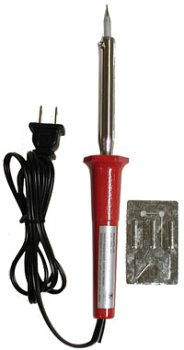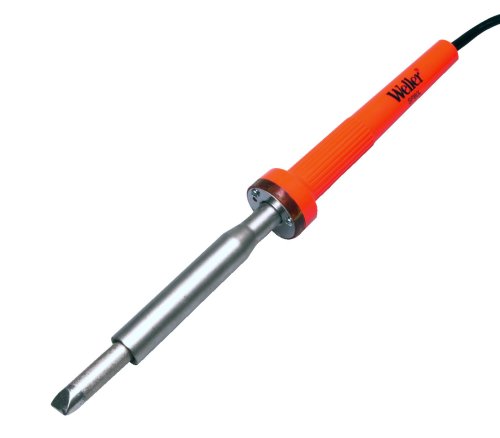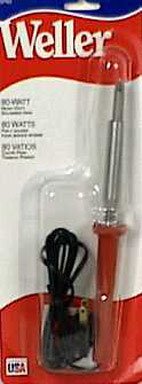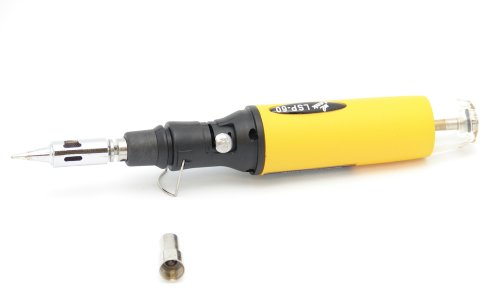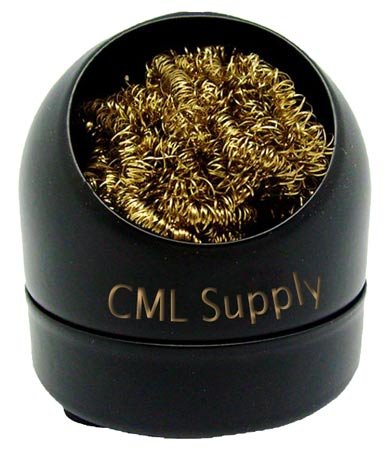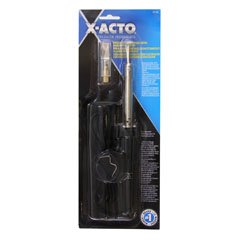War correspondents today owe a lot to the pioneer work of William Russell for the London Times during the Crimean War of 1854 - even though the risks are greater.
Soldering Iron Gun
Eight journalists so far have been killed covering the War Against Terrorism in Afghanistan. Daniel Pearl, reporter for the Wall Street Journal, has been kidnapped and threatened with execution. As this is written, his fate is unknown.
Soldering Iron Gun
In the year just past, 37 journalists lost their lives covering military conflicts around the world. All received the same instructions from their editors, as did Russell: "Tell the exact truth."
Russell's dramatic dispatch of a cavalry charge against entrenched Russians made him famous and encouraged Florence Nightingale to start women-staffed nursing corps. Ten years later the account inspired Alfred, Lord Tennyson, to compose the poem "Charge of the Light Brigade." It immortalized a cavalry unit comprised of 673 brave but foolhardy men.
War correspondents in those days were kept well behind the front lines. Russell observed the epoch engagement - the last by horsemen alone - from a hilltop commanding a panoramic view of the battlefield.
Russia had invaded Ukraine held by Turkey and threatened to overrun Europe by control the Dardanelles Straits. The British with her allies - Turkey, France and Sardinia - sought to stem the Russian tide at the Crimea Peninsula of the Black Sea.
The Russians had set up redoubts and artillery on high ground. The 15th Hussars, 13th Light Dragoons, received a written order to "advance." It was not clear whether the order was simply to draw closer to the enemy or to attack. A verbal statement by the messenger indicated it was the brigade's "duty" to attack.
At any rate, Col. J.A. Oldham gave the order. He was the first to breach the Russian line, but his body was never found.
Russell's stirring account of the ensuing battle shocked his nation and Europe when it reached London three weeks later.
Russell's Report
"If the exhibition of the most brilliant valor, of the excess of courage, and of a daring which would have reflected luster on the best days of chivalry can afford full consolation for the disaster of today - we can have no reason to regret the melancholy loss which we sustained in a contest with a savage and barbarian enemy.
"At 11:10, our Light Cavalry Brigade rushed to the front. They numbered 607 sabers (actually 673) as well as I could ascertain.
"They swept proudly past, glittering in the morning sun in all the pride and splendor of war. We could hardly believe the evidence of our senses! Surely that handful of men were not going to charge an army in position?
"Alas! It was but too true. Their desperate valor knew no bounds. Far indeed was it removed from its so-called better part - discretion.
"They advanced in two lines, quickening their pace as they closed towards the enemy. A more fearful spectacle was never witnessed than by those who, without the power to aid, beheld their heroic countrymen rushing to the arms of death.
"At the distance of 1,200 yards, the whole line of the enemy belched forth, from 30 iron mouths, a flood of smoke and flame through which hissed the deadly balls.
"Their flight was marked by instant gaps in our ranks, by dead men and horses, by steeds flying wounded or rider-less across the plain.
"The first line was broken. It was joined by the second. They never halted or checked their speed an instant.
"With diminished ranks, thinned by those 30 guns which the Russians had laid with the most deadly accuracy, with a halo of flashing steel above their heads, and with a cheer which was many a noble fellow's death cry, they flew into the smoke of the batteries.
"Ere they were lost from the view, the plain was strewed with their bodies and with the carcasses of horses. Demigods could not have done what they had failed to do.
"At 11:35, not a British solder - except the dead and dying -- was left in front of these bloody Muscovite guns."
Aftermath
As the smoke of battle cleared, 113 men of the Light Brigade were counted dead and 134 wounded. Horses, big targets, suffered 475 killed. Another 43 were shot later as "unserviceable."
Russell - following instructions to "tell the exact truth" - concluded his dispatch: "Our Light Brigade was annihilated by their own rashness, and by the brutality of a ferocious enemy."
Despite this and other early reverses, Great Britain maintained its record of losing all the battles except the last one.
The Russians finally burned the fortress town of Sebastopol and surrendered. The Black sea was opened to commerce of the world for another generation.
A decade later, Tennyson penned his famous poem. A few lines are especially memorable:
Half a league, half a league,
Half a league onward.
All in the valley of Death
Rode the six hundred.
Someone had blundered.
Their's not to make reply.
Their's not to reason why.
Their's but to do and die.
When can their glory fade?
Honour the charge they made!
Honour the Light Brigade.
Noble six hundred!
.
Click here to see this article on Lindsey Williams's website
February 17, 2002
Charge of Light Brigade - Early War Journalism
Soldering Iron Gun
Oct 24, 2011 05:31:28

Click for larger image and other views
 >> Click here to update Cheapest prices for Coopertools SP12 Mini Lightweight Solder Iron <<
>> Click here to update Cheapest prices for Coopertools SP12 Mini Lightweight Solder Iron <<
Coopertools SP12 Mini Lightweight Solder Iron Feature
- Mini Lightweight Solder Iron
- Stainless steel barrel
- Replaceable nickel plated copper tip
- Impact resistant handle
- Pencil thin iron ideal for fine soldering and hobbywork
Coopertools SP12 Mini Lightweight Solder Iron Overview
7" long, less tip. Lightweight pencil thin, ideal for fine soldering and hobby work. 12W. Can be used for small intricate jobs such as electronics kits, model railways and jewelry making.
SAVE NOW on the special offers below!
Available In Stock. |
| This Coopertools SP12 Mini Lightweight Solder Iron ships for FREE with Super Saver Shipping. |
|

Limited Offer Today!! Coopertools SP12 Mini Lightweight Solder Iron Black Friday and Cyber Monday Deals
Cookware Sets Lightweight Stroller Designer Strollers
